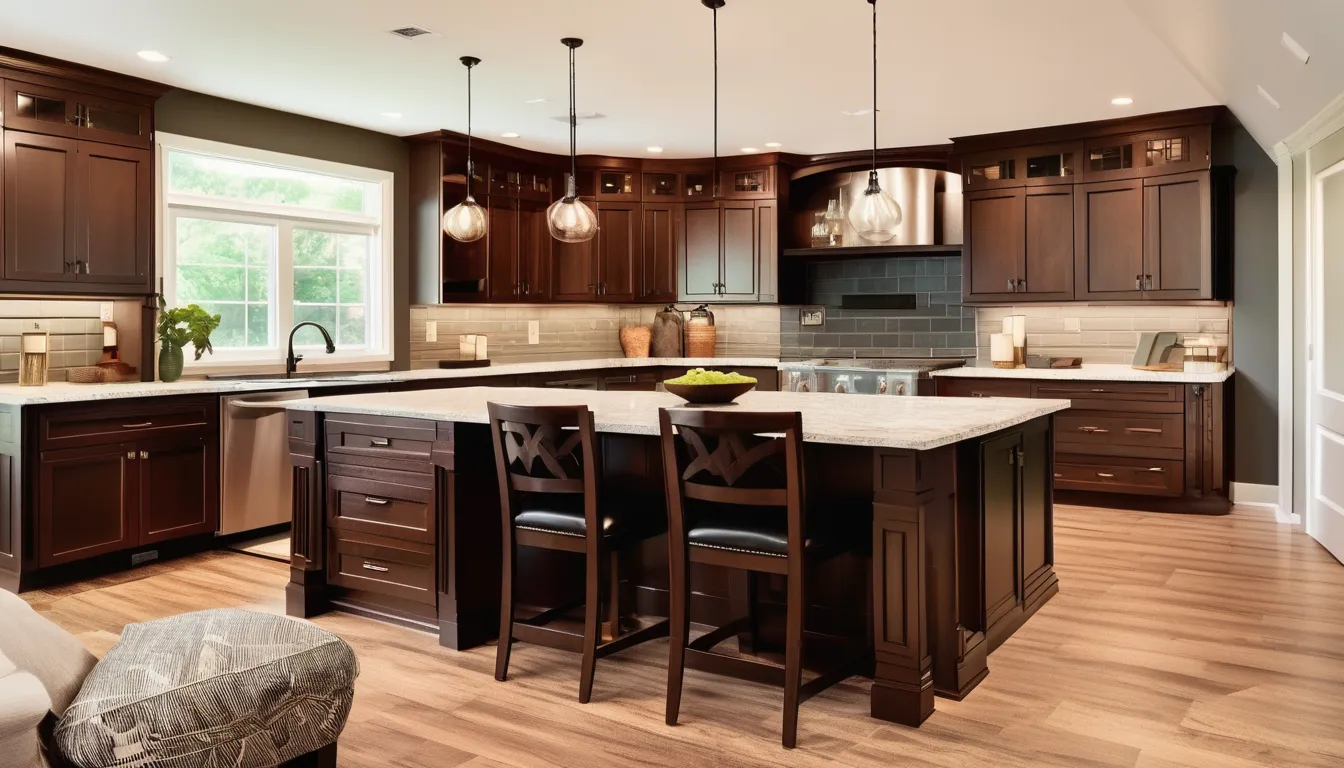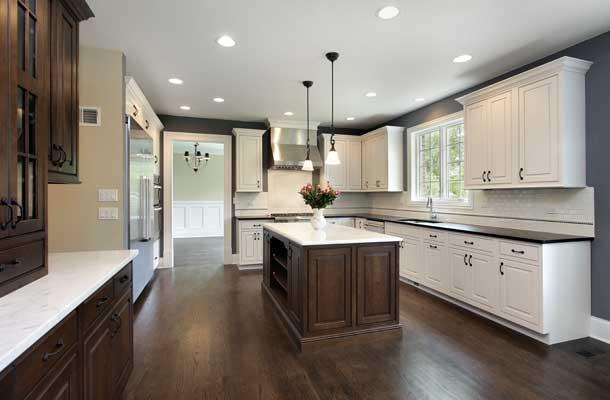Undertaking a home remodel can be an exciting, yet daunting task. One of the most important decisions you'll make throughout the process is choosing the right contractor. A skilled and reliable contractor can bring your vision to life, stay within budget, and ensure the project is completed on time. On the other hand, a poor choice can lead to delays, budget overruns, and subpar work. Here’s a comprehensive guide on how to hire the right contractor for your home remodel. Custom home renovations.
1. Determine Your Project Needs
Before you start looking for contractors, it’s essential to have a clear understanding of your project. The scope of your remodel will guide you in selecting the appropriate contractor for the job. For instance, some contractors specialize in kitchen remodels, while others focus on larger, whole-home renovations or specific trades such as plumbing or electrical work.
Steps to define your project needs:
- Set a Budget: Know how much you are willing to spend, including a buffer for unexpected costs.
- Outline the Scope: Make a list of all the work you want to be done. Break it down into specific tasks, such as electrical work, carpentry, flooring, and painting.
- Establish a Timeline: Determine when you want the project completed. Having a clear timeline will help you gauge a contractor’s availability and reliability.
Once you have a firm grasp on what your project entails, you'll be able to effectively communicate your needs to potential contractors.
2. Do Your Research
Start your search by gathering a list of potential contractors. There are several ways to find contractors for your project, including:
- Word of Mouth: Ask friends, family, neighbors, or colleagues if they can recommend a contractor they’ve worked with in the past. Personal referrals are often the best way to find someone trustworthy and reliable.
- Online Directories: Websites like Angie's List, HomeAdvisor, and Thumbtack offer a wealth of contractors, complete with customer reviews, ratings, and portfolios of previous work.
- Professional Associations: Look for contractors who are members of reputable organizations like the National Association of Home Builders (NAHB) or the National Association of the Remodeling Industry (NARI). Membership often indicates a commitment to quality and ongoing professional development.
As you gather your list of contractors, take note of their experience and the types of projects they have handled. This will help you determine if they’re a good match for your specific remodeling needs.
3. Verify Licenses and Insurance
Once you’ve narrowed down your list, it’s crucial to verify that each contractor is properly licensed and insured. Hiring a licensed contractor protects you as a homeowner and ensures the work will be done according to local codes and regulations. Insurance, including liability and workers’ compensation, is also essential to safeguard against accidents or damages that could occur during the remodel.
Key things to check:
- License: Ensure that the contractor is licensed to work in your state or municipality. This ensures they are knowledgeable about local building codes.
- Insurance: Verify that the contractor has general liability insurance and workers' compensation. This protects you from being held responsible for any accidents on the job.
- Bonding: A bonded contractor provides extra security, as bonding ensures that you will be compensated if the contractor fails to meet the terms of the contract.
It’s always a good idea to ask contractors for proof of these credentials before signing any agreement.
4. Check References and Reviews
A reliable contractor should be able to provide you with references from previous clients. Take the time to contact these references to inquire about their experience working with the contractor. You can also check online reviews, but be cautious of relying solely on online feedback, as it may not always be objective.
Questions to ask references:
- Was the work completed on time and within budget?
- Did the contractor communicate well throughout the project?
- Were there any unexpected issues, and how did the contractor handle them?
- Would you hire this contractor again?
In addition to checking references, you can search for any complaints or disputes with the Better Business Bureau (BBB) or through local consumer protection agencies. A contractor with a solid reputation should have a track record of satisfied clients.
5. Get Multiple Estimates
It’s always a good idea to get at least three estimates from different contractors. Each contractor will have their own approach, pricing, and timeline for completing the remodel. Comparing estimates can help you understand what the average cost is for your project, as well as highlight any significant discrepancies between contractors.
What to look for in estimates:
- Detailed Breakdown: Ensure the estimate includes a detailed list of labor costs, materials, and any other potential expenses. This helps avoid surprise costs later on.
- Timeline: The estimate should also include an estimated timeline for completion. Ensure the contractor’s proposed schedule aligns with your desired completion date.
- Payment Terms: Be wary of contractors who ask for a large upfront payment. Reputable contractors typically ask for a deposit (around 10-20%), with the rest due upon completion of the work.
While cost is important, don’t automatically choose the lowest bid. Inexperienced or unqualified contractors might offer a lower price to win the job, but you may sacrifice quality. Consider the contractor’s experience, reputation, and communication skills alongside the estimate.
6. Assess Communication and Professionalism
A contractor’s professionalism and communication skills are crucial to the success of your remodel. You want someone who listens to your needs, provides clear explanations, and is easy to reach throughout the process.
Signs of good communication and professionalism:
- Prompt Responses: A good contractor should respond to calls, emails, or messages within a reasonable time frame.
- Clear Communication: They should clearly explain the process, any potential issues, and how they plan to resolve them.
- Punctuality: The contractor should show up on time for meetings and consultations. If they are consistently late or unprepared, it may be a sign of poor organization.
- Respect for Your Space: A professional contractor will be respectful of your home, keeping the worksite tidy and minimizing disruptions to your daily life.
A contractor who is communicative, respectful, and professional is likely to handle your project with care and attention to detail.
7. Sign a Detailed Contract
Once you’ve chosen a contractor, it’s time to formalize the agreement. A detailed contract is essential for protecting both parties and ensuring there is no confusion about expectations, timelines, or costs.
What to include in a contract:
- Project Scope: A comprehensive description of the work to be done, including materials, labor, and any specific requirements or design preferences.
- Timeline: A start and end date, with milestones or progress checks if the project is lengthy.
- Payment Terms: A clear breakdown of costs, including the deposit and final payment, as well as any payment schedules.
- Change Orders: A clause that addresses how changes or additions to the project will be handled, both in terms of cost and timeline.
- Warranty and Insurance: Information about warranties on the work completed and any insurance coverage.
Both parties should sign and date the contract, and it’s recommended to keep a copy for your records.
8. Monitor Progress and Stay Involved
Once the project begins, stay involved and monitor the progress regularly. Regular site visits or check-ins will help ensure the contractor is sticking to the agreed timeline and quality standards. If issues arise, address them early to avoid delays or cost overruns.
Tips for staying involved:
- Stay Available: Be responsive to questions or concerns from the contractor during the project.
- Request Regular Updates: Ask for periodic progress reports to ensure the project is on track.
- Review Work: Inspect the work at different stages to ensure it aligns with your expectations and the agreed-upon scope.
By staying involved and keeping open lines of communication, you can ensure a smooth and successful remodeling process.
Conclusion
Hiring the right contractor for your home remodel is one of the most critical steps in ensuring the success of your project. By doing thorough research, checking credentials, comparing estimates, and maintaining clear communication, you can find a contractor who will meet your needs and expectations. With the right professional by your side, you’ll be able to transform your home into a space that suits your vision, style, and lifestyle.




